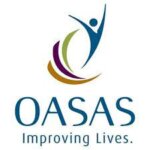CASAC Training Program
Complement or expand your scope of practice through CASAC training and make a difference in people’s lives.
A demand for counselors and mental health providers.
Maria College’s CASAC training program is an OASAS certified education. Start your pathway to become a counselor in addictions and substance use disorders, also known as Credentialed Alcohol and Substance Abuse Counselor (CASAC). There is a growing need in the Capital Region and nationally for CASAC certified practitioners. Gain the practical skills you need to make yourself more marketable for many healthcare settings and enter a career in which you can have a significant impact on people’s lives.
With a competitive market for counselors and mental health providers, the Maria College program will prepare you for the five areas necessary for CASAC preparation: assessment, counseling, case management, client, family and community education, and professional responsibility.
Program Highlights
- The Maria College CASAC training includes 8 courses for a total of 27 credits. It is possible to complete this program in 1-calendar year by taking courses in the Fall, Spring, and Summer semesters.
- This program suits those who are in the allied health fields or psychology; Consider this opportunity either as a viable career option or as an opportunity to complement your program major.
- Through this training program, you will obtain College credits that can be used to complete a degree.
- After obtaining your CASAC Certification, you will be prepared for direct patient care and supervisory positions in the field of substance use and addiction.
- This education and training will prepare you to increase your scope of practice, whether already working in mental health and addiction services, or seeking credentials to enhance or expand your healthcare provider role into addiction services.
The educational requirements will culminate with an internship at an approved drug treatment facility, contributing towards one’s readiness to complete the clinical hours required for the CASAC certification.
Career Opportunities
The U.S. Bureau of Labor Statistics projects that employment of substance abuse, behavioral disorder, and mental health counselors is projected to grow 22% over the next 10 years (until 2031), much faster than average for all occupations. In combination with a Bachelor’s in Psychology or another health-related degree, this additional certification will make you marketable locally and will give you the opportunity to be transportable since the CASAC license is nationally recognized.
